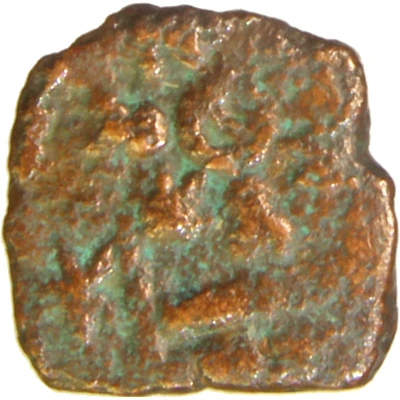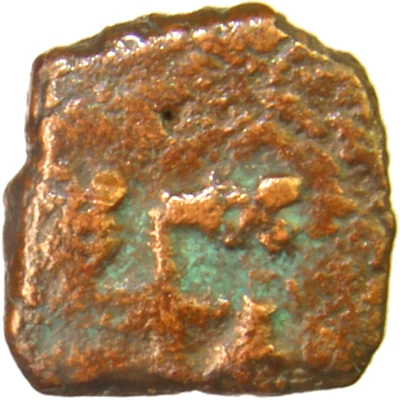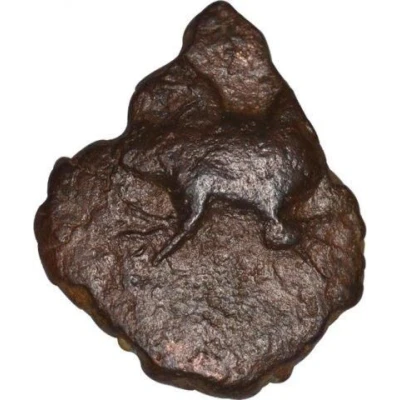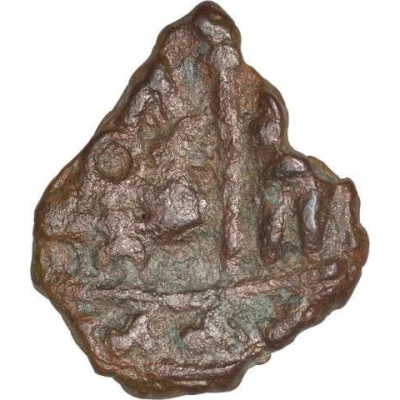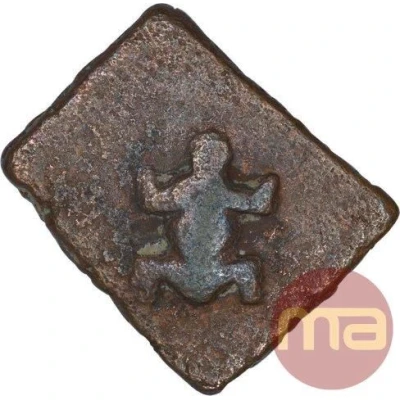
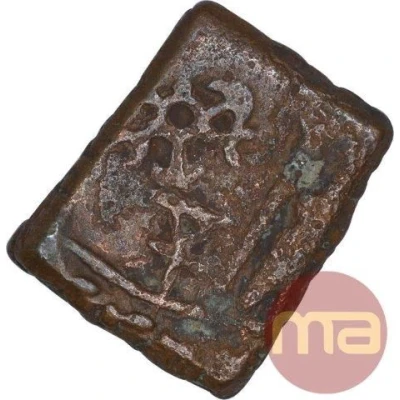

© Marudhar arts
Copper Unit 100 BC
100 BC year| Billon | 2.24 g | - |
| Issuer | Saurashtra Peninsula (Western India) |
|---|---|
| Type | Standard circulation coin |
| Year | 100 BC |
| Composition | Billon |
| Weight | 2.24 g |
| Size | 14 mm |
| Shape | Rectangular (irregular) |
| Technique | Klippe |
| Demonetized | Yes |
| Updated | 2024-10-10 |
| Numista | N#302525 |
|---|---|
| Rarity index | 95% |
Reverse
Mahakal (shiva) holding staff (Danda), six armed symbol, river with fishes
Interesting fact
One interesting fact about this coin is that it features a unique blend of Indian and Greek influences in its design. The coin's obverse side bears a depiction of a seated king, while the reverse side features a wheel with 12 spokes, a common motif in ancient Indian coinage. However, the coin's use of Billon, a metal alloy composed of copper and silver, was a technique commonly used in ancient Greek coinage. This blending of cultural influences reflects the rich cultural exchange and trade that occurred between ancient India and Greece.
